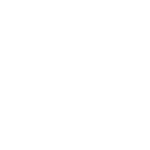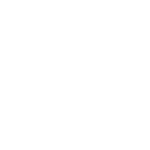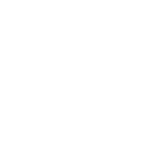
NEWS
Profile Extruder Sees the Light
August 29, 2016
ON‐SITE: THE ROTUBA EXTRUDERS INC.
By: Jim Callari , Editorial Director
From: Plastics Technology
Issue: September 2016
Rotuba exited the sheet business to focus on custom profiles for LED light fixtures. It now ranks as North America’s leading profile extruder in this burgeoning market.
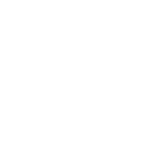
Rotuba President and CEO Adam Bell shifted the company’s extrusion capacity entirely to profiles to capitalize on what he saw as an emerging trend in LED lighting
The LED market is expanding rapidly as lighting OEMs respond to the ever-increasing push for energy efficiency. All you need to confirm that trend is walk into your home-goods store to buy light bulbs. Materials suppliers, meantime, are busy developing new grades for processors involved in this business (see June’s cover story). This growth notwithstanding, LED lighting is considered a somewhat new and still-developing industry. But Adam Bell saw trends developing ahead of the pack and reconfigured his company to capitalize on it. Perhaps he has an LED-illuminated crystal ball?
If he does, it was not in evidence when Plastics Technology recently toured Bell’s company, The Rotuba Extruders Inc., Linden, N.J. What was abundantly clear was that he saw the LED lighting business shifting from acrylic and polycarbonate sheet to smaller customized profiles, and moved out of sheet to focus entirely on profiles as a result. Earlier this year, Rotuba sold its sheet extrusion business to Plaskolite, Columbus, Ohio, freeing up manufacturing space at its 150,000 ft² New Jersey plant and adding additional profile extrusion capacity with new lines from Davis-Standard, Pawcatuck, Conn.
With this new focus, Rotuba can now produce more than 150 new custom profile designs annually for LEDs. Its various optical designs include microprisms, directional lenticular ribs, and custom designs to achieve optimal performance. Custom designs and material formulations often eliminate the need for overlays and secondary treatments, Bell explains. Still, getting out of the sheet business was no easy decision, as Rotuba maintains it was the first company to extrude prismatic lighting sheets and profiles in PS and acrylic. But as Bell points out, Rotuba President and CEO Adam Bell shifted the company’s extrusion capacity entirely to profiles to capitalize on what he saw as an emerging trend in LED lighting “With the growth of LED fixtures in the lighting industry, this deal allowed us to focus on growing the custom extruded profile segment of our business. The ability to design, build, and manufacture new extruded profile applications within days, in varying material formulations and polymers, is critical to our success in meeting the rapid changes in LED technology.”
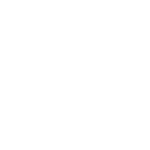
The newest addition to Rotuba’s machine shop is a Haas VF1 CNC machine to make intricate gages for quality control.
Not that risk-taking is anything new for the Bell family, originally named Bielski. The 2008 movie Defiance was based on Nechama Tec’s 1993 book Defiance: The Bielski Partisans. The book told the story of a group led by Polish Jewish brothers—the Bielskis—who escaped Nazi-occupied Eastern Europe and fled into the Belarussian forests, where they joined Russian resistance fighters and built a village in order to protect themselves and about 1000 Jewish non-combatants. Rotuba was founded in 1945 in Brooklyn by Bell’s grandfather, Walter Bell (Bielski), a brother of the WWII partisans, to make plastic rods, tubes, and bars. The firm moved to Linden in 1965. In 1973 Adam Bell’s father Albert assumed day-to-day responsibilities as president. Adam Bell himself started in sales for Rotuba in 1995 and took over as president and CEO in 2003. Custom profiles are one leg of Rotuba’s three-legged business stool. In 1955, Rotuba started producing cellulose acetate (CA). Today, Rotuba is the largest independent custom compounder of CA in the world, running material from Eastman Innovation Lab, part of Eastman Chemical Co.., Kingsport, Tenn., for applications like screwdriver handles and eyeglass frames. It also is a custom-scent compounder of CA, cellulose acetate propionate (CAP) and cellulose acetate butyrate (CAB). In Linden, it has a twin-screw compounding line from Coperion Corp., Ramsey, N.J., dedicated to this product line. It’s equipped with state-of-the-art pelletizing equipment designed to eliminate dust and fines, which makes drying less problematic for its customers. And a few miles from Linden in Garwood, N.J., the company has a wholly-owned subsidiary, Pen Company of America (formerly Rotary Pen), which it purchased in 2011. Pen Company injection molds components for pens and other writing instruments. Rotuba says Pen Company is the only company still manufacturing pens in the U.S.
VERTICALLY INTEGRATED
In Linden, the custom profile business operates about 250 days/yr on a 24-5 schedule. Rotuba has 18 extrusion lines, with two more on the way from Davis-Standard . Extruders range from 2 to 3.5 in. diam. Since 2005, the firm has been specifying extruders from Davis-Standard’s Super Blue line. These come standard with a low-noise, high-torque, double-reduction gearbox; cast-aluminum finned heaters bolted to the barrel; AC drive and motor; and a high-capacity air-cooling system. Rotuba has a mixture of downstream machinery from RDN Manufacturing Co., Inc., Bloomingdale Hills, Ill., and Conair, Cranberry Township, Pa. Most of its product runs are air cooled, though Rotuba also has water-cooling and vacuum sizing capabilities as well. Profiles are ordinarily cut to length. In some cases, offline steps such as additional cutting or notching are performed by operators. Rotuba runs about 8 million lb/yr of PC, PS, and acrylic. Material is conveyed from gaylords and two outdoor silos. Drying is done either offline or at the machine. While Rotuba doesn’t focus much on The newest addition to Rotuba’s machine shop is a Haas VF1 CNC machine to make intricate gages for quality control. color, it does plenty of work with other additives. Materials are highly tailored to the customer’s specifications by modifying the haze, light transmission, or diffusion of the lens. Rotuba’s primary sources of acrylic are Arkema Inc., King of Prussia, Pa., Evonik Corp, Parsippany, N.J., and Plaskolite, Columbus, Ohio. PC is sourced from several suppliers, notably SABIC, Houston. Rotuba worked with a supplier of blending equipment based in Israel to customize a system that combines the base resin with up to seven different additives to dose materials at levels as low as 0.250% of the total mixture. Bell says that Rotuba has about 20 different material formulations.
The company is moving to a paper-free production environment. Each extrusion line is equipped with an iPad mini that’s used as a “virtual set-up sheet,” says Bell. Rotuba also uses the tablet for production scheduling, monitoring, and tracking downtime. Rotuba has three QC labs on the production floor, periodically pulling profiles from the lines to check for tolerances and other defects. Customer-specific requirements are considered for form, fit, color, light transmission, and function. Rotuba can produce 2100 different designs. Some 85-90% of its tooling—including dies, sizing tools, and jigs and fixtures—are produced right in Linden in a tool shop that utilizes wire EDM, CNC, and lathes. Most recently, it installed a VF1 CNC machine from Haas Automation, Inc.., Oxnard, Calif (haascnc.com), specifically to make intricate gauges for quality control.
A key to Rotuba’s success is being fast on its feet. Bell elaborates, “A project might start with a CAD drawing sent to us on Monday morning. That very same day we’ll have a conference call with the customer to discuss the design and the tolerances. At this point we exchange ideas on what could be changed, and why. That night we’ll start running a 3D model using our stereolithography (SLA) machine.
By Tuesday the SLA model will be sent to the customer to see how it fits on their fixture. If they give us the approval on Wednesday, the project moves to the tool room and all the tooling will be cut. On Thursday we’ll be in a position to trial parts if the customer wants to fly in to see their part being run in up to five different LED formulations.” In the LED lighting business, Bell believes that Rotuba’s level of vertical integration and its ability to turn computer drawings into finished parts quickly are crucial. “Those are among the things that set us apart,” he states. “But a major part of our success as a company is the commitment and energy of our team. Our people are committed to ‘going the extra mile.’ We also pride ourselves on making sure we are always communicating with our customers. And one of Rotuba’s objectives is to make sure we are always working on the next generation of products for each of our divisions, from the newest material for LED lighting to the newest additives for cellulosics.” An in-house SLA machine enables Rotuba to make prototypes of LED profiles in hours.
Rotuba can make a wide range of LED profiles and specializes in lightning-quick turnaround. Bell adds, “Rotuba is uniquely positioned to offer our clients the latest engineered polymers to maximize LED performance. Our in-house facilities include 3D drawing, 3D printing, formulation creation, color matching, complete machining, and testing capabilities—providing fast and accurate new-product development.”
On the matter of speed to market, Bell states, “One of the reasons for our tremendous growth over the years is our ability to bring concepts to reality at lightning speed. Our engineers have access to state-of-the-art equipment in our lab and machine shop, allowing us the opportunity to develop new materials and designs for each of our product groups.”
LUXTECH Introduces the First Spec-Grade LED Strip
July 15th, 2016

Click here to request a sample
Highest quality LEDs on the market.
LUXTECH partners with the highest-quality LED manufacturers, including Nichia and Samsung, who are known globally for their luminous efficacy, quality, and relaibility.
Bends and curves without tearing.
LUXTECH’s low heat, super thin, flexible LED strip can be cut, curved, and adhered to fit nearly any lighting application.
Robust and rugged specification grade.
With high capacity copper traces, a rugged polyimide substrate, and authentic 3M VHB tape, LUXTECH FLEX is the most durable LED ribbon on the market.
![]()
Rotuba adding four extrusion lines to expand profile business
April 4th, 2016
A boom in the LED lighting market, especially for profiles, is creating a rapidly growing market that Rotuba Extruders Inc. is positioning itself to satisfy. The longtime family-owned company plans to add four extrusion lines in the next year or so to keep up with the profile business. That’s why it sold off its LED extrusion sheet lighting business to Plaskolite LLC in February.
Read More on plasticnews.com [wp-svg-icons icon=”redo-2″ wrap=”i”]
ROTUBA – A LETTER TO OUR CUSTOMERS
February 22, 2016
Dear Valued Customer;
We are pleased to announce that Plaskolite, LLC. has acquired the Extruded Sheet Division of The Rotuba Extruders, Inc. Plaskolite LLC is recognized as a leader in the Extruded Sheet industry and will continue to provide you with the same level of quality and service that Rotuba has provided you over the years.
With the continued growth of LED fixtures in the Lighting industry, this opportunity will allow Rotuba to focus on growing the Custom Extruded Profile segment of our business.
The ability to design, build and manufacture new extruded profile applications within days, in varying material formulations and polymers, will be critical to our success in meeting the rapid changes in LED technology.
We will be contacting you in the next few days to discuss logistics for shipping your current Open Purchase Orders. Effective today, any future Purchase Orders should be sent to:
Kathy Hopper, 662-893-9185
khopper@plaskolite.com
Greg Lemay, 662-893-5335
greg.lemay@plaskolite.com
Jack Black of Plaskolite LLC will also be reaching out to you in the next few days to introduce himself. Jack’s contact information is as follows:
Jack G Black Jr | Director of Lighting Business Unit
PLASKOLITE LLC.
P: 803-269-2323
F: 614-297-7232
Jack.Black@plaskolite.com
We thank you for being part of our success over the years and look forward to continuing to work with you on any upcoming extruded profile requirements.
Sincerely,
Adam Bell
PLASKOLITE – A LETTER TO OUR CUSTOMERS
February 19, 2016
Plaskolite LLC, the nation’s largest manufacturer of continuously processed acrylic sheet is pleased to announce that effective February 19, 2016, we have acquired the lighting sheet business from Rotuba. This acquisition further strengthens Plaskolite’s position as the industry’s leading sheet producer for the lighting market. Your product will be produced at our Olive Branch- Mississippi, Columbus or Zanesville, Ohio location.
Our inside sales team has over 35 years of lighting market experience and will be happy to help with your product and introduce you to the full line of sheet products that Plaskolite offers. Rotuba has shared their specific product specs with us which should make for an easy transition.
Contacts:
Kathy Hopper, 662-893-9185 khopper@plaskolite.com
Greg Lemay, 662-893-5335 greg.lemay@plaskolite.com
Jack Black, 803-269-2323 Jack.black@plaskolite.com
Best Regards,
Jack G Black Jr
Executive Vice President
JGB/msw
LUXTECH IS SET FOR EXPECTED RECORD GROWTH IN LED MARKET
Philadelphia, PA – February 18, 2016
LUXTECH, a leading American manufacturer of integrated LED module technology, closed another round of funding in less than three weeks and is well-positioned for rapid expansion.
Since its inception in 2012, with an initial investment from Ben Franklin Technology Partners of Pennsylvania, LUXTECH has experienced explosive growth. The company’s disruptive technology, which eliminates the need for bulky LED drivers, is fast becoming a recognized standard component inside luminaires of leading US lighting manufacturers.
According a recent feature article in EDN Magazine about LUXTECH, “The design offers manufacturers lots of other advantages, including higher reliability, a smaller form factor and a dramatically lower solution cost than conventional designs.” EDN also named LUXTECH’s Direct-AC Module as “Hot 100 Product” of 2015.
As the leading American-based LED module supplier, LUXTECH modules are already the prevailing technology for lighting manufactures looking for fast delivery of urgent, customized LED solutions. Furthermore, LUXTECH offers luminaire manufacturers the chance to test-drive their technology through its LightSpeed Module rapid prototyping program.
According to Founder and CEO Sean Darras, “We see ourselves as the ‘Intel’ of the LED lighting industry, offering integrative technology that inspires our customers to develop completely innovative lighting systems, with faster delivery times and fewer parts.”
In 2015, LUXTECH accelerated their hiring pace of engineers and business development personnel. Luxtech has added 5 new members to its team in the past 6 months, and is interviewing for additional engineers and salesmen at their head office and research lab, located in the Philadelphia Navy Yard.
“We are committed to accelerating the adoption of LED lighting. And we work hard to find top lighting engineer talent across the country,” explains Darras.
MIT-trained physicist and LUXTECH Chief Scientist, Ron Lenk, whose patented technology is driving multiple innovations in the $100 billion lighting marketplace, explains that the LED sector is ripe for new ideas that reduce costs while simplifying manufacturing processes.
LUXTECH, which already has a number of patents, is on track to introduce several innovations in 2016, in line with the next major disruption: The Internet of Things. As luminaires are increasingly connected, there are unlimited possibilities to integrate, monitor and control the interior environment with human-centric lighting. LUXTECH plans to integrate sensors, control logic and communication interfaces into a standard product—such as an LED module for downlights—early this year.
EDN Names LUXTECH Direct AC Module a “Hot 100 Product of 2015”
Philadelphia, PA – February 3, 2016
LUXTECH’s Direct AC Modules have been named one of the 2015’s Hot 100 Products by EDN, an electronics industry publication.
The 100 products are selected by both readers and editors, and run the gamut from microprocessors to lighting controls.
LUXTECH’s Direct AC Modules were nominated in the “Optoelectronics & Lighting Controls” category for their innovative design features. These modules offer luminaire manufacturers a simple integrated element that combines the LEDS, a thermal interface, and a compact power supply/driver circuit. They are also cited as offering manufacturers a number of other advantages, including “higher reliability, a smaller form factor and a dramatically lower solution cost than conventional designs.”
